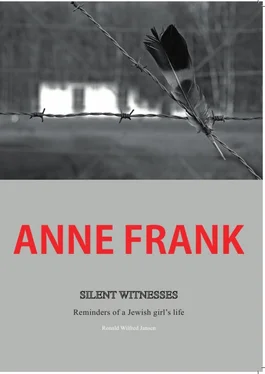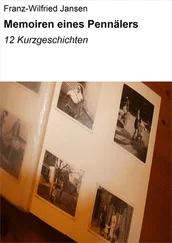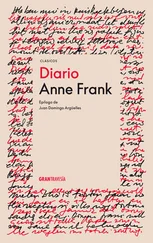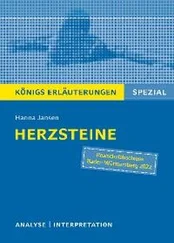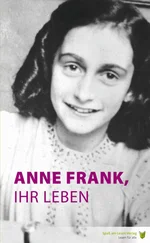39 http://www.zuidelijkewandelweg.nl/ .
40 http://www.anne-in-de-buurt.nl/ .
41 Frankfurter Allgemeine Zeitung ( www.faz.de), http://www.zeitungsverlag-aachen.de/ , http://www.az-web.de .
42Max C. van der Glas.
43 http://www.geheugenvanplanzuid.nl/ingezonden/113.htm .
44This also applies to some of Anne’s other former neighbours who may have seen Anne without knowing. ‘I am afraid I cannot help you because I never met Anne. Still, our paths must have crossed regularly since we lived in Niersstraat across the school that Anne attended for a few years. By coincidence, I worked at Sporthuis Centrum in 1961, and there I became acquainted with a girl from Rotterdam who would travel up and down between Amsterdam and Rotterdam. She later found a room with the Vergnes family at 15 Merwedeplein . This means we know the roof terrace very well, although it was quite a feat to climb up there because it had no regular exit. Incidentally, I married that girl, and that will be 48 years ago this January [2011].’ (Translation of email from John Hendriks, 22 December 2010).
45 http://www.nai.nl/bezoek/info .
46 http://www.bma.amsterdam.nl/ .
47 http://www.joodsamsterdam.nl/ .
48 http://www.annefrank.org/en/Subsites/Home/ .
49The periodical’s title is The Consumer [De consument. Officieel orgaan op verkoopgebied verspreid door winkeliers aangesloten bij de Vakvereniging E.M.M] dated 11 January 1940. Page 7 lists the winners of puzzle 77 and 78. Anne Frank, 37 Merwedeplein won a photo album in group B (to be collected from shopkeeper J. v. Zalingen). In addition to a childrens’ page, the periodical contains recipes, a serial and advertisements. Mrs. S. L. L. Fransen presented the periodical as a gift to the Anne Frank Stichting in 1996. (Email from the Anne Frank Stichting, 15 December 2011).
50‘Some are able to appreciate that [i.e. memories of Anne]. But we are her contemporaries and we lived in the same neighbourhood. We have seen so many houses being raided and none of those received the same attention. If I had had a say in it, the Merwedeplein residence would just have been rented out or sold.’ (Translation of a Dutch email from Francien Bachra, 8 January 2011) Her lively memories of the Rivierenbuurt can be read on: http://www.zuidelijkewandelweg.nl/ingezonden/francienvanderveenbachra.htm .
Anne’s Jewish ancestors in Germany were confronted with anti- Semitism and economic hardship as far back as the 17 thcentury. Anti- Semitism—hostility against Jews—is as old as the hills.
In 1806, emperor Napoleon I (1804-1815) established equal rights for Jews in Germany. Germany consisted of independent principalities at the time, with Prussia and Austria as its leading states. During the German Empire (1871-1918), Jews could participate in public, economic and social life like all other citizens.
During the course of the 19 thcentury, the German Empire industrialised rapidly; however, not everybody profited equally from these developments, and anti-Semitism rose amongst national- socialists, communists and conservatives. Many anti-Semitists were less successful in (banking) business and science than the Jews, and the government protected the Jewish community because they contributed considerable funds to the treasury.
Industrialisation, capitalism, fierce competition and theories centred on the survival of the fittest became prominent in economic practices. Many European countries sought to expand their territory and were engaged in a fierce battle for colonies and natural resources, which accelerated the rise of nationalism and racial classification theories.
During the German Empire, anti-Semitism was generally not expressed openly. Around 1900, however, the Bahnhofhotel Kölner Hof manager came to hate Jews to the extent that he prohibited them from entering his premises. The beer barrels were inscribed with degrading slogans about Jews, such as: Der Jude ist nicht ein Teutscher sondern ein Täuscher (Jews are not Germanic; they are cheaters), Nicht ein Bürger, sondern ein Würger (Not citizens but stranglers), Das Judentum […] verdient […] Ausrottung (Judaism deserves to be exterminated) and Kauft nicht bei Juden (Do not purchase from Jews) 1. In spite of the open hostility against the Jewish, however, many Jews remained loyal to their native country.
Anne’s (great) grandparents adopted German customs and habits, working their way up into the well-to-do, educated upper class of Jewish entrepreneurs in Frankfurt am Main.
Because of its strategic location at the river Main, Frankfurt am Main grew into a major trade centre over the course of the centuries.
Otto Frank did not attend a Jewish school. Instead, he attended advanced secondary education at the public Lessing Gymnasium. Following his graduation in 1908, Otto enrolled in a postgraduate course on economics at the Heidelberg University. However, he quit his studies after a few months, choosing to take up a position with a bank; subsequently, through a fellow student, he was offered the chance to gain work experience at Macy’s department store in New York. Otto left for the United States in September 1909. Unfortunately, he had to return shortly afterwards because his father passed away on 17 September 1909. Following a brief return, Otto went back to the US. This time, he stayed for two years. He spent his first year working at Macy’s department store before taking up a position at a bank. He returned to Germany in the autumn of 1911. Otto started out working for a company in Düsseldorf, which produced window frames. After a while, he joined a company producing horseshoes. 2The suppressed frustrations and internal tensions came to a head in WWI: ‘Like the majority of Germans, the Jews responded to the August 1914 declarations of war with enthusiastic nationalism’. 3The Centralverein deutscher Staatsbürger jüdischen Glaubens (Central Committee of German Citizens of the Jewish Faith) sent out an appeal: ‘To the German Jews! In this fateful hour, our native country is calling its sons to arms. It speaks for itself that every German Jew who is called for duty is prepared to sacrifice his life. Fellow believers! We appeal to you to dedicate your strength to your native country and exceed your duty! Take up arms voluntarily! All of you, men and women alike, should serve your country by personal service of any kind and by providing funds and resources! Berlin, 1 August 1914.’4 2 Incidentally, conscription made enlistment in the armed forces compulsory at this time.
Propaganda by the German empire, as well as the prevailing public opinion in Germany that Russia had started WWI, caused the patriotism of German Jews to increase. Because of the pogroms in Russia and the Russian expulsion of Jews, German Jews felt especially militant.
WWI was the first military conflict on an immense scale in which new technologies and poison gas were deployed. Many young soldiers died in the trenches. Over 17 million soldiers and civilians died during this Great War. Eventually, Germany was defeated.
Otto Frank had been an officer in the German army and took Germany’s defeat as a personal failure.
Following WWI, Germany was in an afflicted state. It was suffering from a severe economic crisis and pervasive unemployment. The country had been devastated. The Germans regarded the Treaty of Versailles (1919) as a major defeat. Germany was heavily impacted by its loss of territory, the forced dismantling of its army and the compensatory payments resulting from the Treaty.
During the Weimar Republic (1918-1933), the Jews were formally equal to other citizens; in practice, however, the crisis led to increased nationalism and anti-Semitism. Many blamed the Jews for the military defeat and the resulting hardships.
Читать дальше
